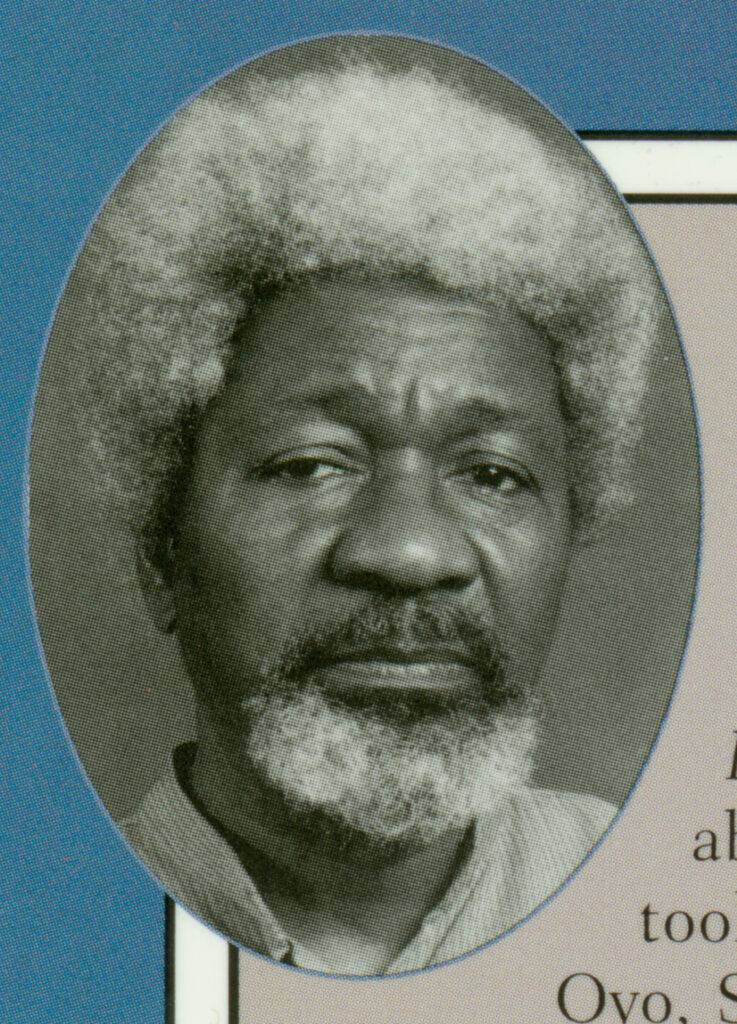Wole Soyinka (2000)

Wole Soyinka was born in Isara, Nigeria, in 1934 and reared in the village of Ake. As a teenager, Soyinka was given the rite of manhood by his grandfather. As a part of the rite, Soyinka was consecrated to the god Ogun, ruler of iron and war. Ogun remains a recurring figure in Soyinka’s work and has been described by the author as his muse. Before leaving Africa for the University of Leeds in England, Soyinka published poems and short stories in the Nigerian literary magazine Black Orpheus. His first play, The Invention, is a comic satire based upon a sudden loss of pigment by South Africa’s Black population, and began the author’s career as a playwright known for using drama as direct commentary upon the political situation in Africa. Well established as Nigeria’s premier playwright, Soyinka published his first novel, The Interpreters, in 1965.That year also marks his first arrest by Nigerian police. This developed into a long antagonistic relationship that led to another arrest and two year imprisonment for Soyinka. According to one commentator, his diary, published as The Man Died: Prison Notes of Wole Soyinka, constitutes “the most important work that has been written about the Biafran war.” Soyinka received the Nobel Prize for Literature in 1986 and his more recent works include Climate of Fear: The Quest for Dignity in a Dehumanized World (2005) and You Must Set Forth at Dawn: A Memoir (2006).

